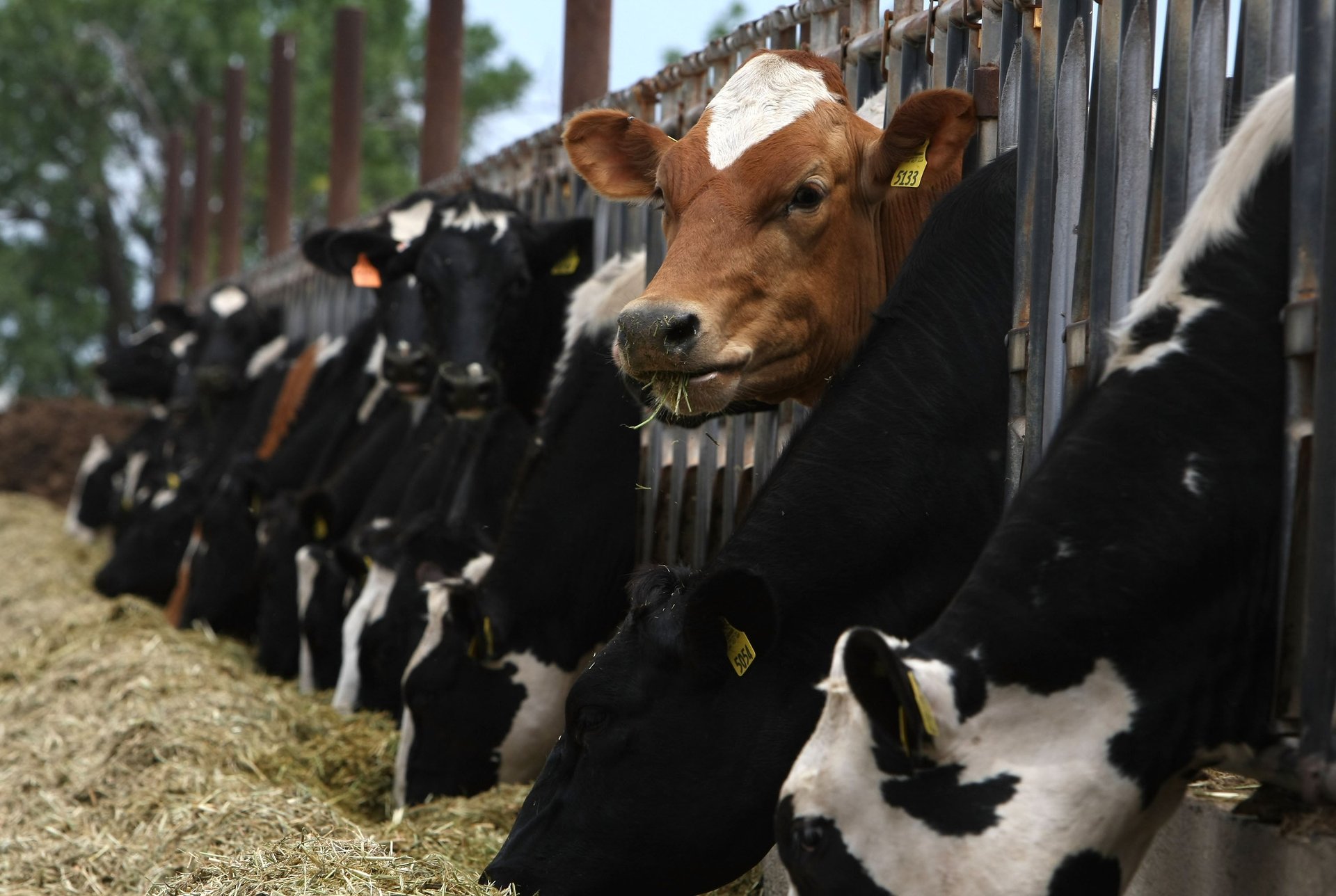Bill Gates is backing a startup that’s making cow diets more environmentally friendly
Australian climate tech company Rumin8 seeks to reduce livestock methane emissions

An Australian startup that makes feed additives for livestock to reduce their methane emissions has caught the attention of billionaire philanthropist Bill Gates and its climate tech investing fund.
Rumin8 closed Phase 2 of its seed funding round, led by Gates-founded Breakthrough Energy Ventures (BEV), yesterday (Jan. 23).
The second seed round was especially conducted to accommodate BEV, which came knocking after the first one was closed. Harvest Road, western Australia-based agri-food business, also participated this time. And investors from the first phase of fundraising, Australian-based Aware Super Sentient WA Growth Fund and US-based Prelude Ventures, both added to their shareholding.
The news comes just months after Rumin8 opened its first US office in San Francisco, in November 2022. Attracting funds was one of the startup’s main reasons for setting up shop halfway across the world (another reason cited was “proximity to a large market of sophisticated beef and dairy industry participants seeking to reduce their impact on global warming.”)
“The demand for sustainable protein has never been more apparent, which is why BEV is keenly interested in reducing methane emissions from beef and dairy,” Carmichael Roberts, who co-leads BEV’s investments, said. “Rumin8 offers a low cost, scalable toolbox that has already proven to be effective in reducing emissions. Our team will support Rumin8 in working closely with farmers to expand the reach of this solution globally.”
What exactly does Rumin8 do?
Rumin8 identifies naturally occurring compounds with anti-methanogenic properties and reproduces them in a highly efficient, low-cost, scalable, and high-quality process to feed to livestock to reduce their emissions. More specifically, the dietary supplement it synthetically replicates is from an active ingredient found in red seaweed called bromoform.
Independent trials show its unique livestock feed additives can cut methane emissions by 95%.
Rumin8’s funding, by the digits
US$12 million: Money raised in the Phase 2 of seed funding to be spent on commercial trials in Australia, New Zealand, Brazil, and the US, product brand development, and pilot manufacturing plant development as Rumin8 moves towards commercialization of its methane busting feed additives.
AUS$25 million (US$17.5 million): Total funds Rumin8 has raised in the two seed funding rounds.
AUS$650,000 (US$456,000): Grant Rumin8 received from AusIndustry’s Entrepreneur’s Program last June “to accelerate the commercialisation” of its feed supplements to reduce methane emissions from livestock
AUS$5 million (US$3.5 million): Grant announced by the government to support 11 research and development for low-emissions feed supplements for grazing animals—Rumin8 is directly involved in three of them, working with University of Melbourne, the Department of Primary Industries and Regions South Australia, and Direct Injection Systems to deliver feed supplements.
Quotable: New funding will speed up Rumin8’s work
“Our laboratory results continue to yield excellent results, our animal trials are reflecting the laboratory results, and the financial modeling we are undertaking is indicating we will be able to supply our products at a commercial price point. Prior to the Phase 2 seed funding round, we were progressing a number of key work streams sequentially. Now we have the resources to progress them in parallel, speeding up the road to commercialisation.” -Rumin8 Managing Director David Messina
Bill Gates’ Breakthrough Energy Ventures’ comes to Australia
Rumin8 marks Gates’ first investment in an Australian venture with Breakthrough Energy, but when it comes to climate tech-startups overall, it’s one among hundreds.“We’re invested now in over 100 startups. This one here in Australia, Rumin8, I think it’s the 103rd,” Gates said in an interview in Sydney with Michael Fullilove, executive director of the think-tank Lowy Institute, on Monday (Jan. 23).
Big picture: Why cut methane emissions from cows?
According to the UN Environment Program (UNEP), methane is the “primary contributor to the formation of ground-level ozone, a hazardous air pollutant and greenhouse gas.” Over a 20-year period, it is 80 times more potent at warming than carbon dioxide. And agriculture is a major source of methane—specifically the methane released from livestock manure, burps, and farts, which account for 32% of human-caused agriculture emissions.
The 2021 Global Methane Assessment by the UNEP’s Climate & Clean Air Coalition found that human-caused methane emissions can be reduced by up to 45% this decade, which would avoid nearly 0.3°C of global warming, as well as ward off 260,000 premature deaths, 775,000 asthma-related hospital visits, 73 billion hours of lost labor from extreme heat, and 25 million tonnes of crop losses annually.
One more thing: Tastings at the “calfeteria”
No matter how effective a product is, the cattle has to ingest it for it to work its magic. That’s why Rumin8 is running a “calfeteria” of sorts—a livestock trial at the University of New England—where its testing which ration cattle find more palatable and more likely to eat, and how the formulation they choose impacts reductions in methane generation.
“If cattle won’t eat a ration because they don’t like a particular dose rate or formulation, then it doesn’t matter how effective the feed additive is at reducing methane generation because it won’t be ingested by the animal and farmers won’t use it because it limits weight gain in their cattle,” said Rumin8 chief Messina.